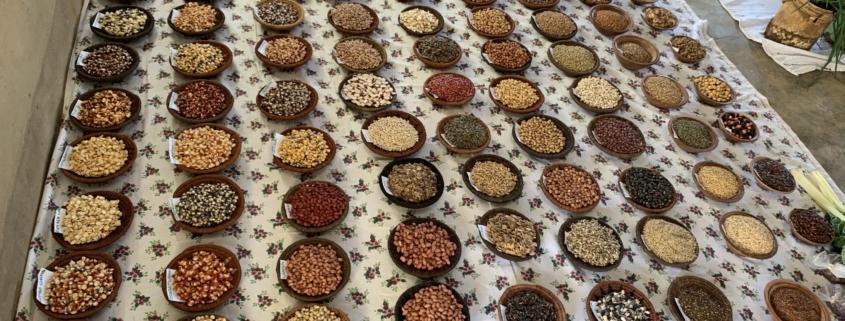Farmers’ Seeds: The Key to Agroecology
We’re thrilled to announce the final episode of ‘THE LAST SEED’ film, “Farmers’ Seeds: The Key to Agroecology.” This production is a result of a partnership between the Rosa Luxemburg Foundation, the Alliance for Food Sovereignty in Africa, Biowatch South Africa, and PELUM Tanzania.
This compelling documentary takes a deep dive into the world of farming, agriculture, and most importantly, the critical role of seeds. Through a diverse set of voices, including farmers, consumers, and agricultural experts, the film emphasizes the role of seeds as the basis of life and sustainable agriculture.
The film opens with a powerful quote, “They tried to bury us, but they didn’t know we were seeds.” encapsulating the resilience inherent in farmers’ seeds. The film underscores the importance of farmer-managed seed systems, highlighting their crucial role in sustainable, agroecological practices. It celebrates the resilience of these seeds that have nourished communities over generations. The film stresses that preserving indigenous seeds extends beyond ensuring a food supply—it also includes protecting our environment and maintaining a vital relationship between earth and its inhabitants. One of the core messages conveyed throughout the film is the rejection of the colonization of African food policies, agricultural practices, and governance. Instead, the documentary proposes agroecology—a sustainable approach to farming that embraces farmer-managed seed systems. By empowering farmers to take control of their seeds, agroecology represents a departure from dependency on corporate entities. A fundamental tenet of the film is the importance of diversity and how it can help us transition towards a more sustainable, agroecological approach. By encouraging farmers to experiment with diversifying their crops, we can increase the productivity of the entire farm, not just one crop.
This idea forms the crux of a key message in the film: agroecology is about increasing the productivity of the whole farm. Agroecology prioritizes farmers’ empowerment, enabling them to make informed decisions based on local conditions. It reduces reliance on external seed sources as farmers can cultivate and improve their seeds through observation, testing, and adaptation. Each seed thus becomes a knowledge reservoir, integrating years of information about the environment and enhancing resilience.
The film also highlights the fragility of the industrial seed system, drawing attention to its vulnerability when faced with adverse conditions. In contrast, the seeds from a farmer-managed seed system demonstrate their ability to thrive and adapt, reflecting their close alignment with the local ecosystem. It becomes clear that agroecology, rooted in traditional knowledge and sustainable practices, outperforms industrial agriculture on multiple fronts.
Ultimately, “Farmers’ Seeds: The Key to Agroecology” argues that transitioning towards agroecology may be a challenging endeavor, but it is by no means unattainable. It is a rallying cry for everyone – farmers, consumers, and policymakers – to put our minds and hearts into supporting sustainable agricultural practices. We invite you to join us on this eye-opening journey into the world of agroecology. Let’s explore the power of seeds, the resilience of nature, and the potential of farmer-managed seed systems. By embracing agroecology, we can cultivate a future where sustainable farming and food sovereignty are the norm.

